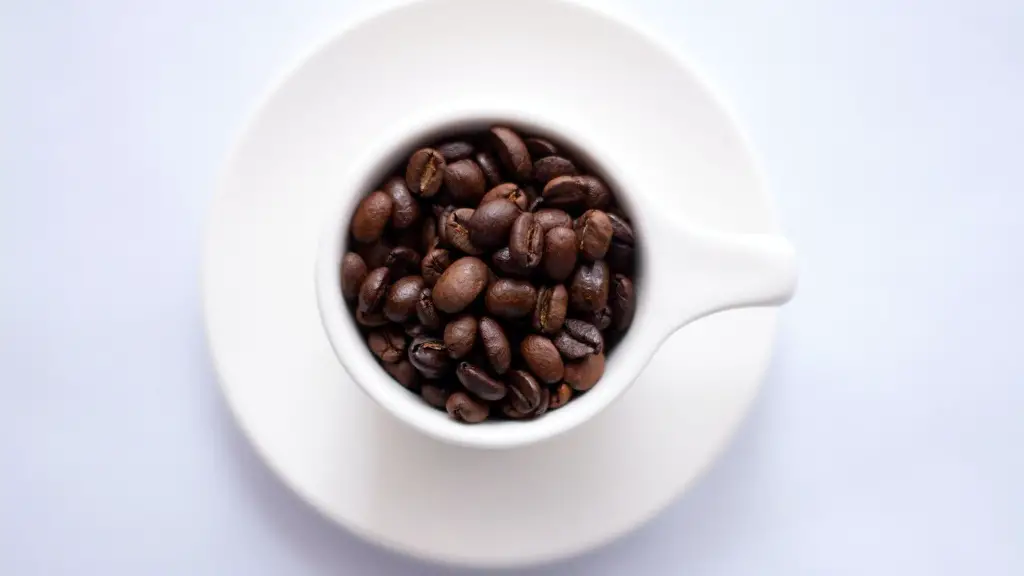Coffee is one of the most popular beverages in the world and many of us start our mornings with a cup of java. But does coffee really cause weight gain? This is a question that has been asked for years and there are still conflicting opinions about it, so let’s take a closer look at the evidence.
The effects of coffee on body weight have largely been studied in relation to its caffeine content. Caffeine is known to increase the feeling of being full and therefore may lead to people consuming fewer calories overall. Studies have also shown that caffeine is associated with improved metabolic activity and could potentially reduce body weight. Furthermore, some compounds present in coffee can help reduce the absorption of fat and carbohydrates, and therefore help prevent weight gain.
The results of these studies may seem positive, but we must also take into consideration the ingredients added to our coffee. Creamers and sweeteners are some of the items that are commonly added to coffee and can add a significant amount of calories. One study found that adding creamers and sweeteners to coffee can lead to an extra 50-70 calories per cup. Therefore, if you are drinking four cups of coffee a day with added ingredients, this could add up to an extra 200-280 calories per day. Consuming extra calories on top of your regular intake will inevitably lead to weight gain.
However, not all creams and sweeteners are created equal. For example, non-dairy creamers don’t have any fat or cholesterol, so they can be a good option if you want to add some flavor to your coffee. In addition, some zero-calorie sweeteners such as stevia can provide a sweet flavor without adding any extra calories.
It is important to remember that moderation is key when it comes to drinking coffee. While a few cups of coffee a day can be beneficial, consuming excessive amounts of caffeine may lead to a range of side effects, including anxiety, irritability, headaches, and insomnia. Furthermore, some of the compounds present in coffee may also be detrimental to our health if they are consumed in large quantities, such as the acrylamide present in some types of coffee.
Overall, the evidence suggests that coffee does not cause weight gain per se, but adding creamers and sweeteners can. Therefore, in order to prevent weight gain, it is important to limit the amount of added ingredients in your coffee and make sure you are consuming it in moderation.
Expert Insight into the Topic
Our understanding of the relationship between coffee and weight gain has come mostly from research studies. But what do experts have to say on the matter? We asked some of the leading dieticians and nutritionists the question: Does drinking coffee cause weight gain? Here is what they had to say.
“Coffee, in and of itself, does not directly cause weight gain,” says dietitian Sarah Schlichter. “It’s really about what you put into it. If you’re adding creamers, sweeteners and syrups, you’re adding calories and sugar, and that’s what’s going to make it unhealthy. But if you’re drinking it black, or with a small amount of non-dairy cream, it can actually be beneficial.”
Nutritionist Amy Gorin echoes Schlichter’s sentiment, saying: “Coffee can actually be beneficial for weight loss. Studies have shown that caffeine can increase the feeling of being full, and it can also help burn calories. But too much caffeine can lead to a range of side effects and can also potentially lead to weight gain if you’re adding too many calories to your coffee. So, the key is to drink coffee in moderation, without adding excessive sugar and cream.”
Insight from Personal Experience
Although what the experts have to say is important, it can also be enlightening to explore the topic from a personal perspective. When I decided to try and lose weight, I started drinking coffee without sugar and creamer, which seemed to be beneficial. I found that I felt fuller for longer and I was also more energized throughout the day. In addition, I noticed that I was able to cut down my overall food intake, which definitely helped with my weight-loss journey.
I also decided to try adding some non-dairy creamers to my coffee and I found that it was a great way to make drinking coffee more enjoyable. Although I was adding a small amount of calories, I was still able to see results. This is because I was still making sure that my overall calorie intake was lower than what it would have been if I had been drinking coffee with a lot of cream and sugar. I think this shows that having a few cups of coffee with a small amount of added ingredients can be beneficial, as long as you are not overdoing it.
The Effects of Coffee on Appetite
Coffee is known to have an effect on appetite and hunger, as it can both increase and decrease feelings of hunger. This means that drinking coffee can both help with weight loss and weight gain, depending on the individual’s context.
A study found that caffeine can reduce hunger levels and therefore lead to a reduction in overall calorie intake. On the other hand, it was found that consuming more than 400mg of caffeine per day can actually have the opposite effect, causing hunger levels to increase and leading to an increase in overall calorie intake.
Furthermore, it was also found that drinking coffee can also lead to an increase in eating behavior, as people tend to crave sugary snacks after consuming coffee. This can be attributed to the release of insulin, which is known to affect our eating behavior.
Therefore, it is important to take into account the individual’s context when looking at the effects of coffee on weight gain. For some people, drinking coffee can be beneficial, while for others, it can actually lead to weight gain.
The Role of Genetics in Weight Gain
It is important to also consider the influence of genetics when looking at the effects of coffee on weight gain. Genetics can play a significant role in our body’s response to coffee and other stimulants, as each individual has a different genetic makeup.
For example, certain genetic variants can lead to an increased sensitivity to caffeine, meaning that that individual may be more likely to gain weight if they consume too much caffeine. On the other hand, other genetic variants may lead to a decreased sensitivity to caffeine, meaning that the person may be less likely to gain weight.
In addition, it is important to note that genetics can also affect our metabolism, which can affect our ability to lose or gain weight. Some people may be predisposed to gaining weight more easily, while others may be able to metabolize food more efficiently.
Therefore, it is important to be aware of how your genes can affect your body’s response to caffeine and other stimuli, as this can help you make more informed decisions about your diet and health.
Does Coffee Have Other Benefits?
While the evidence suggests that drinking coffee may not directly lead to weight gain, it is important to note that it can have other beneficial effects. Studies have found that coffee can have a range of positive effects, from improving alertness and concentration, to protecting against certain diseases such as Alzheimer’s and Parkinson’s.
In addition, studies have shown that coffee can reduce the risk of some types of cancer, including colorectal, kidney, and prostate cancer. Furthermore, it has also been found to reduce the risk of heart disease, stroke, and type 2 diabetes.
Therefore, although there is conflicting evidence about the effects of coffee on weight gain, it is important to note that it can have other beneficial effects on our health, and should be consumed in moderation.
Are There Alternatives to Coffee?
If you’re looking for an alternative to coffee, there are a few options that can provide the same energy boost, without the caffeine. Coca-Cola and Mountain Dew are both popular alternatives and are available in many places. They are both high in sugar, however, so it is important to be aware of your sugar intake.
Alternatively, green and black tea can be a good substitute for coffee. They both contain caffeine, but it is in much lower amounts than what is present in coffee. This can provide the same energy boost as coffee, without the jitters.
Finally, some people prefer to switch out coffee for herbal teas such as chamomile. This can provide a soothing and calming effect and can also give you the same energy boost.
It is important to remember that it is all about finding the right balance for you. Everyone is different and finding what works best for you is key to achieving your health goals.





